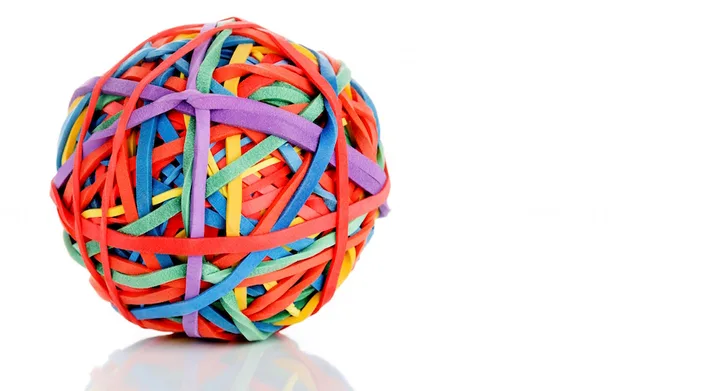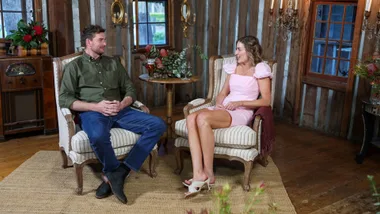Take a look at the space around you and there’s every chance you’ll see stacks of paperwork you’ve been “meaning to get around to”, piles of clothes you “need to go through” and hundreds of emails you’re “going to delete”.
Take a look at the space around you and there’s every chance you’ll see stacks of paperwork you’ve been “meaning to get around to”, piles of clothes you “need to go through” and hundreds of emails you’re “going to delete”.
The situation may be frustrating, but you’re certainly not alone. According to a study conducted by independent think tank The Australia Institute (tai. org.au), 88 per cent of Australian homes have at least one room that’s overrun with clutter* – a habit that’s having a negative impact on our ability to focus, process information and de-stress at the end of the day.
Marie Kondo, Japanese decluttering guru and author of smash hit The Life-Changing Magic Of Tidying Up (tidyingup.com), doesn’t mince words, writing in her second instalment, Spark Joy: “Life truly begins only after you have put your house in order.” The question is, are you ready to begin your new life?
Dealing with mental clutter
Before you get to the nitty gritty of where to place the iron, you will first need to tend to the clutter clogging up your mind, says Yvette Bowlin (declutterist. com), author of The Declutter Code: 10 Simple Steps To Clarity.
“Clutter is contagious for the simple reason that what we think is what we often become,” she explains. “This means if we think we’re busy, we won’t take a minute to open and sort the mail for example, and then it will just pile up for days.”
To help free your mind, start each day by writing a list of what needs to get done, thereby transferring your problems from your body and committing them to paper. If you can, steal moments throughout the day to sit in stillness and reflect on what’s troubling you, recommends Bowlin. “Aim for at least 10 minutes in silence – a period that will allow clarity and peace to fall over you – no matter how busy your mind is.” The theory behind this meditative practice is simple: from a place of clarity, you want to react to mental clutter, but see right through it. “When we see through it, we can clear it away.”
Tackling your environment
One of the biggest mistakes people make when attempting to declutter their homes is getting stuck into it without putting any thought into what it is they’re trying to achieve, writes Kondo. “When you imagine your ideal lifestyle, you are actually clarifying why you want to tidy and identifying the kind of life you want to live once you’ve finished,” she says.
Kondo recommends making either a mood board or writing a list based around your new “dream environment”, before adopting her now-famous “keep only the items that fill you with joy” philosophy – one that Kondo says not only increases your sensitivity to joy and accelerates the pace of your tidying, but also hones your decision-making capacity on all other areas of your life.
Practical items such as vacuums – which we’re fairly certain don’t bring joy to anyone – can stay, but everything else? Outta there!
The key to making the decluttering process easier is to tidy by category rather than by location (a common mistake that only serves to shift clutter from one room to another, according to Kondo, who recommends putting every item of clothing you own into the one space so you can see exactly what you have). As you pick up each individual item, look at it thoroughly and ask yourself how much joy it brings into your life.
If your spine isn’t tingling, say thank you to the item (gratitude is an important part of Kondo’s philosophy) and bid it goodbye. Rather than focusing purely on physical clutter, take a moment to also think about stagnant air in your environment, advises Bowlin. Her top tip? Leave your windows open whenever weather permits. “Once a fresh burst of oxygen enters, the mind and body can also take in clean air and your home takes on a more open, expansive energy.”
Simplify your digital clutter
Your mind is now Zen and every design magazine in the country is knocking on your door, so why do you still feel so … frustrated?
Digital clutter could also be causing you stress, so it’s worth taking 15 minutes every day to deal with your inbox and archiving. “The quickest way to tackle this is by creating intuitive folder structures where everything has a home,” recommends Bowlin. “Create one for bills, another for receipts and so on.”
On the run, deal with emails as they come in, and trash everything you no longer need. “Whether it’s mental, digital or environmental, this is actually a good way of looking at the decluttering process,” adds Bowlin. “Either ensure everything that comes into your life has a designated home you’re happy with, or it needs to exit – and quickly.”
The key to making the decluttering process easier is to tidy by category rather than by location

 Getty Images
Getty Images









